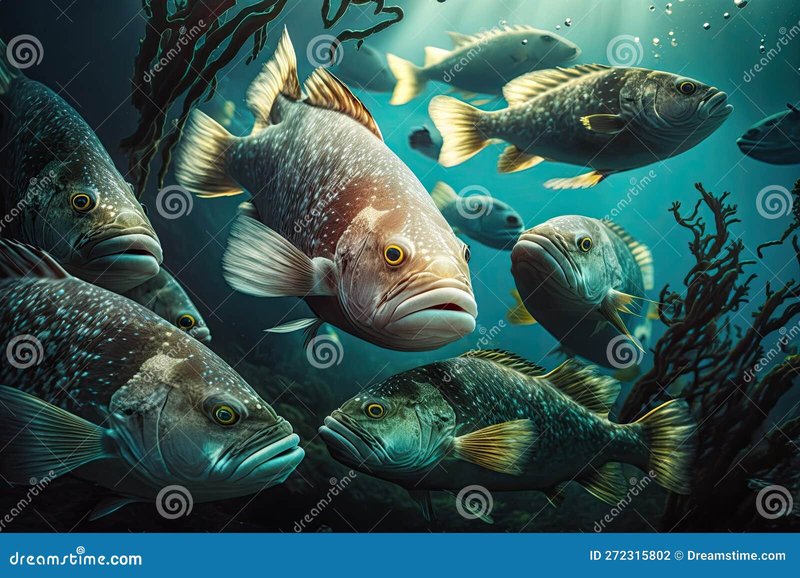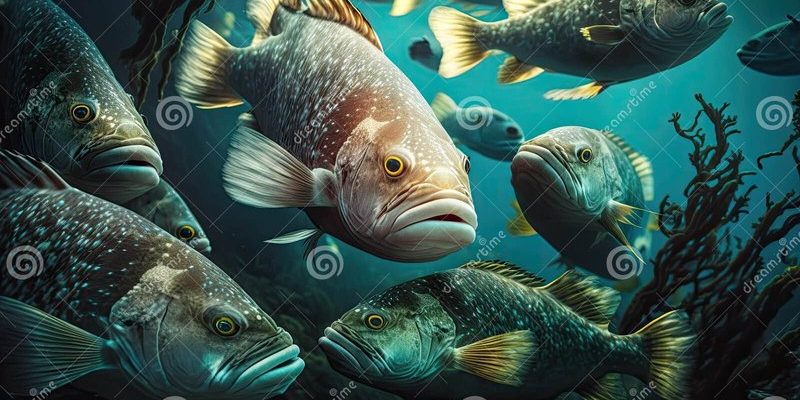
Cod are fascinating creatures, not just because they taste great but also because they’re essential to their marine environment. They swim through the cold northern waters, contributing to the health and balance of their ecosystems in ways that might surprise you. So, grab a cup of coffee, and let’s dive into the underwater world of cod and see how they keep things running smoothly.
What are Cod and Their Habitat?
The term “cod” refers to several species, but the most well-known is the Atlantic cod (*Gadus morhua*). These fish are typically found in the North Atlantic Ocean, swimming in deep waters that can reach temperatures just above freezing. Cod live in places like the Gulf of Maine and the waters off Canada’s Atlantic coast. Think of them as the cool kids hanging out in the ocean’s colder sections, away from the warmer, sunnier areas.
Cod are fascinating to watch. They have streamlined bodies designed for swimming, with large heads and whisker-like barbels that help them search the ocean floor for food. Their natural camouflage, with a mottled pattern of greens and browns, makes it easier for them to blend in with their surroundings. This helps them avoid predators and sneak up on their prey, which often includes smaller fish and invertebrates. Cod are truly engineered for life underwater!
The Feeding Habits of Cod
Cod have a varied diet that can be described as a mix of opportunistic and predatory. They aren’t picky eaters; they enjoy a buffet of small fish, crustaceans, and even mollusks. This broad diet plays a crucial role in controlling the populations of these species, making cod vital players in their ecosystems.
When you think about it, cod can be likened to a pest control service in the ocean. They help keep the numbers of smaller fish and invertebrates in check. If the population of these creatures were left unchecked, it could lead to overpopulation and depletion of essential resources, creating bottlenecks in the ecosystem. So, you might be wondering how this all connects—without cod, the health of marine life could decline significantly.
Cod as a Keystone Species
In ecology, a keystone species is a species that has a disproportionately large effect on its environment relative to its abundance. Cod fit this definition perfectly. Their feeding habits dictate not just the population dynamics of their prey but also influence the habitat itself.
For instance, by preying on smaller fish, cod help maintain a balance in fish populations, which in turn allows plant life like phytoplankton and seagrass to thrive. These plants are pivotal for producing oxygen and providing shelter for countless marine organisms. Without cod, the entire ecosystem could change dramatically, leading to a less diverse and less healthy marine environment.
Think of cod as the gentle custodians of their underwater community. They ensure that everything remains in harmony, preventing any one species from becoming too dominant and allowing others to flourish alongside them.
The Impact of Overfishing on Cod Populations
Unfortunately, the story of cod isn’t all positive. Overfishing has drastically reduced cod populations in many areas. Unsustainable fishing practices have pushed these important fish closer to extinction, which has severe consequences for marine ecosystems.
When cod numbers dwindle, the balance shifts. Predator-prey relationships can become severely disrupted, leading to overpopulation of smaller fish and invertebrates. This can result in a decline in plant life and overall biodiversity. It’s like removing the foundation from a house; without cod, the entire marine structure becomes unstable.
Efforts are underway to revive cod populations through conservation initiatives and sustainable fishing practices. It’s crucial that we work together to protect these fish and their habitats, ensuring that they can continue to play their role in the marine ecosystem for generations to come.
Cod’s Role in Human Culture and Economy
Cod isn’t just important for the health of our oceans; it also plays a significant role in human culture and economies, especially along coastal regions. This fish has been a staple in diets for centuries, providing a source of protein and essential nutrients.
The fishing industry surrounding cod has historically supported countless families and communities. From the famous fish and chips in the UK to traditional dishes in Scandinavian countries, cod has earned a place on dinner tables around the world. However, with declining populations, it’s important to approach cod fishing responsibly, ensuring that we don’t take too much from the sea.
Many communities have adopted sustainable fishing practices, focusing on catching cod in ways that allow their populations to recover and thrive. Supporting these efforts means not only enjoying delicious meals but also protecting the future of this vital species.
The cod’s role in marine ecosystems is a testament to how interconnected life is beneath the waves. Whether they’re maintaining the balance of marine life or being central to our dining experiences, cod are truly remarkable. But with challenges like overfishing facing them, it’s essential that we advocate for their protection.
Let’s celebrate these incredible fish and support sustainable practices that allow us to enjoy the bounty of the ocean without sacrificing its health. Remember, every time you enjoy a meal featuring cod, you’re not just savoring its flavor—you’re also playing your part in a much larger story about the health of our oceans and the ecosystems they support. Together, we can ensure that cod continue to swim gracefully through the waters, nourishing both nature and humankind.

